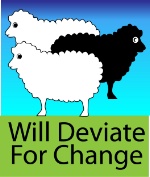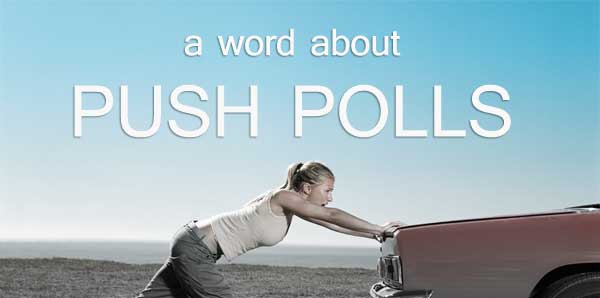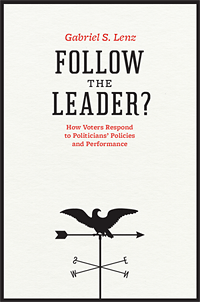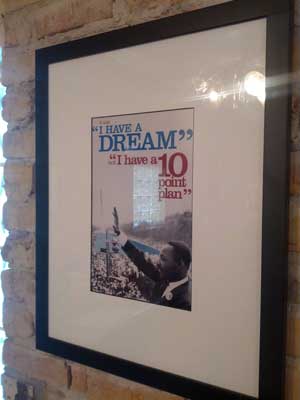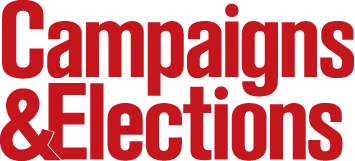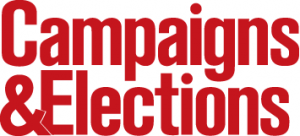
by Alex Patton | May 7, 2015 | Political Consulting, Political Research
I anticipate some blow-back on this blog post, but “since my intent is to write something useful to whoever understands it, it has appeared to me more fitting to go directly to the effectual truth of the thing than to the imagination of it” (Machiavelli 61).
In a previous post, we dared to ponder the question, “Do political campaigns really matter?” We looked at the curious case in Alachua County where two Republican campaigns were run in the same election cycle – one campaign was essentially a name placed on the ballot; the other campaign was a robust campaign. We observed a mere 2.2% difference in the results. We also took note of the complete dominance of the Democratic Party in Alachua County elections.
Hegemony: leadership or dominance, especially by one country or social group over others.
But we also noted the recent success of more conservative members of the Gainesville City Commission – arguably the most conservative commission in 15 years.
How do we reconcile these two things and what can we gleam from the situation in regards to campaigns and politics?
The Search for Positive Deviance

The Search for Positive Deviance
Anytime we start a new analysis, we look to see if anyone has already done the work and we look for positive deviance.
Positive deviance (PD) is an approach to behavioral and social change based on the observation that in any community, there are people whose uncommon but successful behaviors or strategies enable them to find better solutions to a problem than their peers, despite facing similar challenges and having no extra resources or knowledge than their peers. These individuals are referred to as positive deviants Wikipedia – positive deviance
We had mentioned before, that since 2002, 4 Republicans have won Alachua County in county-wide, partisan races.
Let’s examine these campaigns:
| year |
race |
winner |
winner% |
| 2010 |
USSEN |
Rep |
40.01% |
| 2010 |
CC4 |
Rep |
54.03% |
| 2006 |
AGR |
Rep |
51.46% |
| 2004 |
Sheriff |
Rep |
51.84% |
In the 2010 USSEN race, Senator Marco Rubio was the top voter in a three way race. So, our first strategy would be to split the hegemony’s power with a two way split. For now, we table that suggestion.
In the 2010 County Commission race, Republican Susan Baird defeated long time incumbent and current Democrat county chair, Cynthia Chestnut.
In 2006, long time incumbent Republican Agriculture Commissioner Charles H. Bronson beat unknown Eric Copeland after Copeland switched from a CFO campaign after fellow Democrat Alex Sink got into the CFO campaign. (You knew Copeland was in trouble when he launched his Agriculture Commissioner campaign with “The incumbent has done an adequate job representing the interests of Agriculture in Florida.”)
In 2004, long time incumbent Republican Steve Oelrich beat neophyte challenger Bill Davis for Alachua Sheriff.
If we look for positive deviance in all three of these victories, we see the Democrats fielding poor candidates, neophyte candidates or in the case of Cynthia Chestnut – fielding a candidate that did not campaign at all.
However, the one thing the above three positive deviances share : the Democrats screwed up. (It is not my intention to take away from the Republican campaigns because they had to be in a legitimate position to take advantage of the Democrats’ mess up.)
If we also consider the Mayor’s race of 2013, when Republican Ed Braddy beat Democrat, incumbent Craig Lowe, we see a similar event – the Democrats screwed up.
So, we have identified a second strategy : field good, legitimate Republican candidates and hope and pray the Democrats screw up.
But there is another item the winning campaigns share which brings us to the third and I believe the most important strategy: the political environment was formed before the campaigns ever took place.
If we reconsider the case of Craig Lowe, we can observe a series of events that happened well before his re-election campaign ever started.
Criag Lowe’s first term was highlighted by:
Another local example is the biomass issue. Nathan Skop based his campaign on the disaster that is the GREC biomass contract. He is a subject matter expert and foretold all the calamity barreling towards Gainesville. Skop was right on the issue, but lost the campaign. Why? The political environment had not been formed successfully – yet. As the issue matured and macerated, the City of Gainesville has witnessed significant political change on the City Commission.
Yet another local example is from 10 plus years ago with the fight against Alachua’s comprehensive plan – Lee Pinkoson and Cynthia Chestnut were successful in ousting two incumbents because the political environment had been formed before they entered the campaign.
This is the recipe for success! I can tell you from experience; a lot of people aren’t going to like the taste.
The Recipe for Success
The time voters are most open to persuasion is during non-campaign contexts.
These elected officials must never have a week off. These elected officials must have every move examined with a ruthless intensity and an inexorable contrasting of values. The critique must be unrelenting, and the criticism must garner press coverage. The effort required is a long, uncivil, and confrontational process; it requires resources.
The goal is to drive the negatives of those in power to as close to 50% or higher or strategically place them on the wrong side of public opinion on issues – before any Republican campaign comes into a nascent state.
Here is the catch: There are virtually no organizations or groups willing to pay the price to do what must be done for the length of time it must be done. Not many people or organizations will risk the press labeling them malcontents or gadflies or uncivil.
Not many people are willing to be the “bad guy” for anything other than a single issue and a short period of time.
The political party can not take the lead role, because they minute they take the lead, the issue becomes partisan and it forces voters put on their partisan, team jerseys. The critique must be received before voters put on their partisan jersey because once the critique is perceived as purely partisan, the critique will not be considered. The party and politically partisan groups can play a supporting role.
The local ‘advocacy’ business groups will not play this natural role because they fear retribution and risking their prestigious goodwill. These groups continue to attempt to play an apolitical role in a political system and continue to believe politics is a genteel exercise in rationality that can be massaged and performed outside the public arena. These advocacy groups must understand the role of Solomon can be effectively played only when there are two competing sides presenting.
Political change is not rational, genteel, private nor delicate; it is the opposite.
Conclusion
To review the possible strategies:
- Do nothing and accept the status quo.
- Field good Republican candidates and force three way contests with liberals being 2/3 of the candidates.
- Field good Republican candidates and wait for the Democrats to screw up.
- Put in the long, controversial work needed in the form of a permanent campaign in order to form the political environment well before candidate campaigns start.
I have been espousing this recipe for several years because I believe in seizing one’s own fate. I have discussed these ideas with other political experts in depth and they agree with the recipe. So far the idea has been considered offensive and met with scorn.
I realize this recipe is controversial, but again my goal is to write something useful, not imaginary. To change the hegemony, a “political bad guy” must operate 365 days a year.
Said nicely: To make change permanent, there must be a competing viewpoint offered on a permanent, consistent and unrelenting basis. In order to do it correctly, there must be a institutionalized effort comprised of people that do not fear retribution.
Any community that desires change in a hegemony does a tremendous disservice to any candidate when they complain behind closed doors only or speak up 6 weeks before election day.
The heavy lifting and dirty work must be done before and outside candidate campaigns – after all, even Jesus needed John the Baptist to lay the groundwork for his work to be successful.

by Alex Patton | Feb 19, 2015 | Political Research

I’ve received several inquiries on whether or not a “push poll” was run in our local area this week. While I have not polled in the area in question, the question does provide a teachable moment about push polls.
What is a Push Poll?
The American Association of for Public Opinion Research has a lengthy definition and lists characteristics of a push poll.
Here is the gist:
Here are characteristics that will usually indicate to a respondent that the call is not a legitimate survey.
- One or only a few questions are asked, all about a single candidate or a single issue.
- The questions are uniformly strongly negative (or sometimes uniformly positive) descriptions of the candidate or issue.
- The organization conducting the calls is not named, or a phony name is used.
- Evasive answers are given in response to requests for more information about the survey.
In addition, the following characteristics will indicate to journalists, reporters, and survey professionals that a telephone call is not a legitimate survey.
- The number of people called is very large, sometimes many thousands.
- The calls are not based on a random sample.
- It is difficult to find out which organization conducted the interviews.
What is NOT a Push Poll?
A random sample poll testing negative statements is NOT a push poll.
Again, we look the AAPOR:
One way to tell is that message-testing surveys exhibit the characteristics of a legitimate survey, such as:
- At the beginning of the call, the interviewer clearly identifies the call center actually making the calls. (However, legitimate political polling firms will often choose not to identify the client who is sponsoring the research, be it a candidate or a political party, since that could bias the survey results.)
- The interview contains more than a few questions.
- The questions usually ask about more than one candidate or mention both sides of an issue.
- Questions, usually near the end of the interview, ask respondents to report demographic characteristics such as age, education level, and party identification.
- The survey is based on a random sample of voters.
- The number of respondents falls within the range of legitimate surveys, typically between 400 and 1500 interviews.
Conclusion about what is and is not a push poll
The Marketing Research Association (MRA), the American Association of Political Consultants (AAPC), the American Association of Public Opinion Research and the entire survey and opinion research profession, oppose the practice of “push polling”.
However, and here is the gist: Just because a pollster tests what you may perceive as a negative statement DOES NOT AUTOMATICALLY mean it is a push poll.
As a pollster there are legitimate reasons to test negative messages. As an example, sometimes we test negative messages to convince candidates or interest groups NOT to use the message.
The bottom line is: Please, before you accuse someone of unethical behavior or potentially a crime (in some states), you should know about the accusation you are leveling.

by Alex Patton | Apr 24, 2014 | Political Research

I have been thinking a lot about thermostats and politics lately.
This thought pattern has been driven by two things:
- I banned someone from my facebook page for the first time ever, and
- Two separate books I have been reading discuss thermostats and politics.
The Facebook Ban
First, the facebook ban.
As you may know, I am a weekly guest on a local talk radio show. I discuss politics, political strategy, and the science behind politics. Over the past few months, I have ‘engaged’ in a ‘debate’ with a loyal listener.
I am all for free speech, debate, and the exchange of ideas. I enjoy it, I enjoy different perspectives, and I enjoy being challenged.
However, our ‘debate’ always seemed to denigrate with this listener to a bullying session rather than any attempt to learn from one another. The listener’s mind was made up, and if you didn’t 100% agree, began the attempt to beat you into submission with a volley of name calling, fallacies, and curated ‘proof’ from selected blogs.
The final straw was when the listener fabricated and attributed to me things I didn’t say in an attempt to make a point. Even when corrected, the listener wouldn’t stop. All of this being done mostly on my facebook timeline.
A fanatic is one who can’t change his mind and won’t change the subject.
-Winston Churchill
Finally, I had enough of the nonsense, shrill rhetoric, and name calling. I banned the listener. It has been the most peaceful, glorious week.
Yes, you have a right to free speech, but I have a right to turn the channel.
However, the series of incidents served as a perfect, recent example of the overheated, political rhetoric of our times.
The Books
I have read two books in the past three weeks:
Schelling’s book, Micromotives and Macrobehavior, explores the relationship between individual’s decisions and their individual characteristics (micromotives) and aggregated social patterns (macrobehavior), and how these two influence each other. Because as we know from our previous studies, our observance of how people act is a powerful force on how we act. Schelling writes of ‘contingent behavior—behavior that depends on what others are doing.’
Ideology in America’s “main theme of this book, that when it comes to policy preferences, there are more liberals than conservatives. On average about 50% more Americans choose the liberal response (or the liberal end of a continuum) than choose the conservative response. Given a choice between left and right options for government activity, left prevails on average. And this pattern is robust. It will not matter what assumptions we make or what operations we perform. The picture will always be the same.”
So, one book about economics, the other book about political ideology and the disconnect in people’s stated political ideology and their policy preferences at an operational level of government.
When two separate and non-connected books (one authored by a Nobel prize winner) mention the same thermostat framework, it is time to place close attention.
Thermostats and Politics
The basic premises of both books is explained in Schelling’s Micromotives and Macrobehavior :
“The thermostat is a model of many behavior systems—human, vegetable, and mechanical.” (Schnelling)
“If the system is up to the task of attaining the desired temperature, it generates a cyclical process. The temperature rises in the morning to the level for which the thermostat is set—and overshoots it. It always does. The temperature then falls back to the setting—and undershoots it. It rises again and overshoots it. The house never just warms up to the desired temperature and remains there.” (Schnelling)
“The thermostat is smart but not very smart…. If the system is “well behaved” the ups and downs will become smaller and eventually settle on a steady wave motion whose amplitude depends on the time lags in the system.” (Schnelling)
Political Ideology, when writing about the study’s methodology expands this framework specifically to politics:
“In Wlezien’s conception, public opinion is mainly relative – a matter of more or less rather than absolutes.” (Ellis & Stimson)
“Public Policy Mood moves in the direction opposite to control of the White House and does so quite systematically.” (Ellis & Stimson)
“It tends to reach high points in either the liberal or conservative directions in the years in which out parties regain control. And then it moves steadily away from the winning and controlling party.” (Ellis & Stimson)
“Group A is left of Party “L.” Group B has preferences between the two parties. And Group C is to the right of Party “R.” But since only Group B changes in response to party control, it forms the longitudinal signal for the entire electorate. Thus the whole electorate acts, on average, as if it were entirely composed of Group B.” (Ellis & Stimson)
“Our conclusion is simple. Our best single understanding of why public opinion moves is that based on basic thermostatic response. Much political commentary, failing to take this fact into account, ends up looking to mystical and exotic sources to explain the commonplace. And much of that commentary sees the changes of the moment as harbingers of a different future, when the political landscape will be fundamentally different from what it currently is. But we know that the changes of the moment will be reversed as quickly as they came, as the public reacts against the ideological direction of the party in power.” (Ellis & Stimson)
Conclusions
Believe it or not, today’s extreme rhetoric can be explained as “normal” and in fact, completely predictable and expected.
In my opinion, today’s rhetoric is in response to two major items:
- the extreme nature of the recent financial meltdown, and
- the extreme nature of the expansion of government with Obamacare.
If you consider our political system to be explained by a ‘thermostat model’, today’s extreme rhetoric is simply Group C reacting in an attempt to regulate the political system.
Take solace that “Group B” will win- in time, and the system will regulate once again back towards some sort of equilibrium.
The Nest thermostat pictured above has gained a toehold in the market because the current thermostats are inefficient – our old thermostats aren’t that smart.
What America needs politically is a Nest thermostat, but until that time calm down and relax. Unfortunately, today’s shrill politics is an overheating of the system, soon to self-regulate.

by Alex Patton | Dec 9, 2013 | Political Consulting, Political Research

2013 Top Reading List for Political Consultants
During each odd number year, I set a goal to get better at my political science craft. Part of that goal is reading. Odd number year = take advantage of some down time = goal of 50 books related to political consulting. In 2013, I exceeded the goal by 5. #humblebrag
I believe the job of a political consultant is to study how people make decisions and then figure out how to affect the decision making process. This means our area for study is wide and vast.
In attempting to categorize the areas of concentration of my reading, I’ve come up with Behavior Decision Making, Cognitive Brain, Game Theory, Political Psychology, Advertising, Neuromarketing, Branding, Argumentation, and Philosophy.
I would say that this year’s main focus was on attempting to read more about how the brain works, makes decisions, and ways to potentially influence voters.
When people find out about my reading goal, I am often asked for recommendations.
Here you go:
Alex’s Fancy 2013 Top 10 12 Reading List for Political Consultants
(Note: The links provided are NOT affiliate links. They exist only for your convenience.)
12. Political Game Theory: An Introduction (Analytical Methods for Social Research), McCarty, Nola
Regardless of what the title says, this is not an introduction. There is math, lots of math, lots of advanced math. It is not for the faint of heart, and approximately 57% of the math went over my head. The part I did retain was fantastic.
11. Zen and the Art of Motorcycle Maintenance, Pirsig, Robert M.
Read this book on my digital sabbatical. It is a philosophy book, but a classic, welcome relief on a beach weekend.
10. Oxford Handbook of Political Psychology (Oxford Handbooks) Sears, David
A great anthology on political behavior, group relations, theoretical approaches, and change politics. I admit, I only skimmed the International Relations section.
9. The Persuadable Voter: Wedge Issues in Presidential Campaigns, D. Sunshine Hillygus &, Todd G Shields
The science behind wedge issues and cross-over voters.
8. Thinking, Fast and Slow, Kahneman
Additional Reading on the two major systems of the brain.
7. How Voters Decide: Information Processing in Election Campaigns (Cambridge Studies in Public Opinion and Political Psychology), Lau, Richard R.
Behavior Decision Making Theory. A very interesting methodology used by Lau to study how voters actually decide.
6. Follow the Leader?: How Voters Respond to Politicians’ Policies and Performance, Lentz, Gabriel
I loved, loved, loved this book. In fact, I wrote an entire blog piece about it. Essentially this book tells us that in agreement with cognitive studies that issues mean little in the voters decision making process. Again, a novel methodology to studying the issue.
5. The Gamble: Choice and Chance in the 2012 Presidential Election, Sides, John, Vavreck, Lynn
An absolute must read. This book takes a deep dive in Romney / Obama, separating the “political science truth” from the talk show pundits’ “truths”. If you are interested in the science of politics and what really happened in 2012, you should read this book.
4. Predictive Analytics: The Power to Predict Who Will Click, Buy, Lie, or Die, Siegel, Eric
If there was ever a book I read this year that made me read every single footnote, it was this one. This is fascinating stuff, but it also carries over into your clients’ request for “big data.”
3. The Thinker’s Toolkit: 14 Powerful Techniques for Problem Solving, Jones, Morgan D.
While this book contains practical methods to critical thinking, the major revelation in this book is that our minds are liars. This book started my year long journey into biases, cognitive research and humility. If you consider yourself a true political analyst, you must do some meta-thinking about your biases and adopt some methodologies to counter them. If the smartest analysts in the world implement methodologies to attempt to minimize bias, political consultants should also.
2. The Happiness Hypothesis: Finding Modern Truth in Ancient Wisdom,Haidt Jonathan
While this book is additional reading into the two major systems of the brain and how our brains fool us, the book’s other key insight is the importance of metaphors. It uses the perfect metaphor for the two system brain: the rider and the elephant. This one metaphor wrapped up all the research and reading of cognitive biases into one simple to understand package; thus stressing the need for metaphors. Eureka moment! It has the added bonus of adding to our understanding of human nature and the concept of happiness.
1. Affective Intelligence and Political Judgment, Marcus, George E.
This was the one book that allowed me to pull together “Alex Patton’s grand unified theory of political communication.” I had just completed reading the book and was ruminating on it while doing a 50 mile bike ride. Then came the Eureka moment, the proverbial lightning strike. I had to stop my bike and find my phone voice recorder as soon as possible. Yes, it was that dramatic. The book is dry and academic, but for me it was the most important book I read this year.
Re-reads
The Prince, Machiavelli, Niccolo
Classic and must be read at least once a year. It is a political consulting law.
Influence, Cialdini, Robert
Another classic, it should absolutely be required reading. Want to learn how to use social proof in politics? This is the start of your journey.
The Black Swan: Second Edition: The Impact of the Highly Improbable, Taleb, Nassim
This book significantly changed the way I think about and make sense of the world. It is a discussion of how highly improbable events have massive influence on our lives. Once you read this, you can no longer give ‘guarantees’ and you become aware of the fact that “you don’t know what you don’t know.”
Story: Style, Structure, Substance, and the Principles of Screenwriting, McKee, Robert
What does screenwriting have to do with politics? EVERYTHING. Political Consultants are story tellers, and there is no better book on the structure of stories and how to tell better ones. Looking how to construct a hero narrative? Look no further, read this.
The Nature and Origins of Mass Opinion, Zaller, John
Read this in college, and Zaller’s four axioms have stayed with me ever since. I normally re-read this every other off year for a refresher.
Final Words
Noting that political consulting has few professional credentials other than reputation, it is imperative that we take ownership of improving our craft. If you are still relying on decades of accumulated rules of thumb, I think you should make a change in your behavior.
Our minds are tricky little devils, and we owe it to our clients to get better.
Happy New year, and I hope the cycle is prosperous for you and your family.
All of these selections and more are included in the Ozean Political Library.

by Alex Patton | Sep 24, 2013 | Political Consulting, Political Research
Just finished a pretty dense read by Gabriel Lenz, Follow the Leader: How Voters Respond to Politicians’ Policies and Performance, and yes, it does include math.
However, it is a very interesting read and I strongly suggest you take a gander.
The main question I (the author) set out to answer is, which view of democracy best reflects modern reality? Do citizens lead politicians on policy? Do they judge them on performance-related characteristics? Or do they merely follow politicians?
The author’s conclusion(s)?
Voters for the most part focus on what the author calls performance-related characteristics, such as previous success in office and trustworthiness.
The voter thinks: “This politician has the personal traits I think a politician should have. This politician has done a good job in previous political positions.” In this view, citizens don’t directly lead politicians on policy, but they do lead on performance, throwing out incompetent or corrupt incumbents.
Most of the time voters apparently failed to judge politicians on policy—at least during campaigns.
At times, however, public policy did interest the masses. In these unusual cases, politicians appeared to follow voters.
Incumbents facing widespread public concern on issues that disadvantaged them responded strategically, adopting policy stances that mollified the public,
Instead of finding that policy issues influenced votes, the reverse was usually found : voters first decided to support a particular politician, then adopted that politician’s policy views.
WOW! When you put these findings together and take in the possibility that the author’s hypotheses are true, it has wide spread implications for how we run campaigns.
No, this is not a book review and I am skipping the math, additional nuances of the research, and more importantly the methodology, but let’s just agree that his findings warrant a much larger discussion.
However, this research would appear to confirm the recent flood of additional research about the cognitive abilities of our brain.
We are busy voters and our brains attempt to streamline life for us by creating shortcuts, habits, and heuristics. Why would issues be any different?
President Obama Illustration
A perfect example of this research is President Obama and his ’emerging’ stance on gay marriage.
In the first campaign, how many Democrats did you know who did NOT AGREE with President Obama’s then OPPOSITION to gay marriage, but voted for him regardless?
Put another way, gay people, who desperately wanted to get married voted for a President in direct opposition to gay marriage, and then rationalized an answer to solve this dissonance.
However, when the issue reached a critical mass inside the Democratic caucus, what did President Obama do? He simply switched positions.
Yes, some activists that are single issue voters, who care passionately about almost exclusively this issue, may have stayed home and not voted in the reelection campaign or not donated (probably the larger concern). The point is the number of these voters are so incredibly small.
Most Democrats, for whatever reason, decided they liked President Obama for reasons they may not even understand, and they were voting for him, come hell or high water. When they didn’t care much about an issue or they had no opinion, they adopted the opinion of their chosen politician.
Another example? Remember back to the debate on Obamacare or even during the Supreme Court hearings – a lot of these voters didn’t really know the first darn thing about Obamacare. The people that wrote the law don’t even know what is in it or how to implement it; however, ask an Obama supporter if they were “for” it, most will answer emphatically yes! They adopted their President’s stance on the issue. Just don’t ask them why.
The point is we all do this to some degree. We don’t have the time, energy or desire to learn about every issue. (This is why the simplistic “get informed” approach to so called low information voters is wrong.)
Campaign Implications
I am not saying as campaign professionals that we can ignore issues. The people who participate in primaries, volunteer for campaigns, and donate to campaigns will care about issues.
However, we will need to change our focus and get our candidates and even issue campaigns to tell better stories that pack an emotional punch. These stories can’t be just a litany of policy points.

I have a Dream, NOT a 10 point plan!
In fact, I propose issues only be used to illustrate larger themes of values and character. In other words, Issues are subordinate to the story, and the story is about competence.
When I attempt to explain all of this to candidates or their campaign managers, their initial reaction always seems to be ‘horror’ or ‘disgust’.
I then point them to a poster I had made for the office. The poster is of Martin Luther King, Jr. standing on Washington’s mall during a small, little speech he gave.
The caption?
” It was ‘I have a Dream’, not ‘I have a 10 point plan.’ “
Conclusion
Sometimes a picture is worth a thousand words.
However, If the candidate persists (especially my conservative candidates), I may point them to an additional quote in the study:
“In fact, many people— including the Founding Fathers— have argued that voters should vote, not on policy, but on performance– related characteristics such as character.” Lenz, Gabriel S. (2013-01-29). Follow the Leader?: How Voters Respond to Politicians’ Policies and Performance
I think I may need a new poster in the office.

by Alex Patton | Sep 18, 2013 | Ozean Media, Political Consulting, Political Media, Political Research
Ozean was surprised and honored to be mentioned in Campaigns & Elections Magazine as one of their “Consulting blogs to bookmark”
Ozean Media Political Consulting Blog
Ozean Media itself is not exclusively a political consulting firm, but part of its focus is on Republican political campaigns. The firm devotes a section of its blog to political consulting, and frequently posts updates on topics relevant to the consulting world. Be sure to check out the Friday posts where the blog goes in search of a “Eureka” moment.

